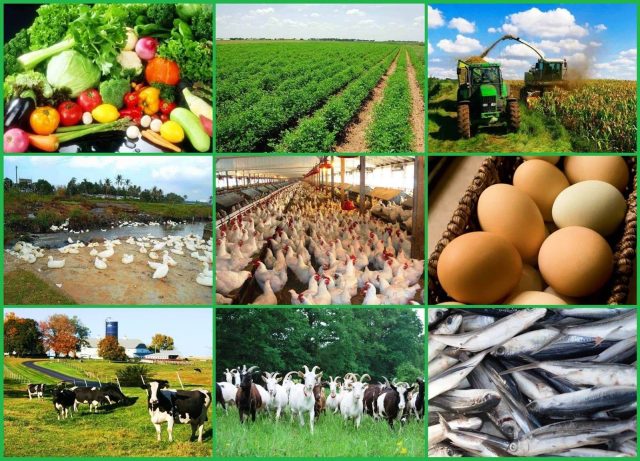In a significant move to revolutionize Nigeria’s agricultural sector, the private sector has introduced a Large-Scale Agribusiness Financing Programme aimed at strengthening food security and driving food sovereignty. The initiative, unveiled in Abuja during a high-level meeting with the Minister of Finance and Coordinating Minister of the Economy, Wale Edun, and the Chief Executive Officer of the Ministry of Finance Incorporated, Dr. Armstrong Takang, seeks to attract large-scale investments into industrial agriculture. The programme, designed to mobilize financing for the cultivation and processing of critical crops such as oil palm, rice, maize, cassava, sugar, and soybean, aligns with the federal government’s strategy to reduce Nigeria’s annual £3 billion food import bill. This article explores the details of the initiative, its potential impact on Nigeria’s agricultural landscape, and the government’s commitment to fostering private-sector participation in agriculture.
The private sector has taken a bold step toward transforming Nigeria’s agricultural sector with the launch of a Large-Scale Agribusiness Financing Programme. The initiative, unveiled in Abuja, aims to strengthen food security, drive food sovereignty, and attract large-scale investments into industrial agriculture. According to a press statement issued on Monday by the Director of Information and Public Relations at the Federal Ministry of Finance, Mohammed Manga, the programme represents a collaborative effort between the private sector and the federal government to address critical challenges in Nigeria’s agricultural sector.
The investment model was presented to the Federal Government during a high-level meeting attended by the Minister of Finance and Coordinating Minister of the Economy, Wale Edun, and the Chief Executive Officer of the Ministry of Finance Incorporated, Dr. Armstrong Takang. Representatives from KPMG and other private sector operators outlined the fund’s structure, which is designed to mobilize large-scale financing for the cultivation and processing of key crops such as oil palm, rice, maize, cassava, sugar, and soybean.
“In a groundbreaking move, the private sector has unveiled a pioneering investment fund to revolutionize Nigeria’s agricultural landscape and drive food security,” the statement read. “This initiative takes the form of a private sector-led Large-Scale Agribusiness Financing Programme, presented to the Federal Government as a collaborative effort to drive food sovereignty through large-scale investment in industrial agriculture.”
The programme aligns with the federal government’s strategy to reduce Nigeria’s annual £3 billion food import bill by expanding mechanized farming and enhancing local refining capacity. By prioritizing private sector participation, transparency, and scalability, the initiative aims to create a sustainable approach to agricultural financing that addresses longstanding bottlenecks in the sector, including inadequate funding for large-scale farming, insufficient processing infrastructure, and post-harvest losses.
During the meeting, Minister Wale Edun and Dr. Armstrong Takang welcomed the initiative, reaffirming the government’s commitment to fostering private-sector participation in agriculture. They emphasized that unlocking investment in industrial farming is key to achieving sustainable food security and reducing Nigeria’s dependence on food imports. The launch of the fund is expected to accelerate the expansion of mechanized farming across Nigeria, increase local food production, and create jobs within the agricultural value chain.
The Large-Scale Agribusiness Financing Programme represents a significant shift in Nigeria’s approach to agricultural development. By leveraging private sector expertise and resources, the initiative aims to address critical gaps in the sector and create a more resilient and self-sufficient food system. The programme’s focus on key crops such as oil palm, rice, maize, cassava, sugar, and soybean reflects the government’s priority to enhance domestic production of staple foods and reduce reliance on imports.
One of the key objectives of the programme is to expand mechanized farming across Nigeria. Mechanization is critical to increasing agricultural productivity, reducing labor costs, and improving efficiency in farming operations. By providing financing for the acquisition of modern farming equipment and technologies, the initiative aims to empower farmers to scale up their operations and achieve higher yields.
In addition to expanding mechanized farming, the programme also seeks to enhance local processing capacity. Insufficient processing infrastructure has long been a challenge in Nigeria’s agricultural sector, leading to significant post-harvest losses and limited value addition. By investing in processing facilities, the initiative aims to reduce post-harvest losses, increase the shelf life of agricultural products, and create opportunities for value addition and export.
The programme’s emphasis on private sector participation is a key factor in its potential success. The private sector brings expertise, innovation, and resources that are essential for driving large-scale agricultural transformation. By creating an enabling environment for private sector investment, the initiative aims to unlock the full potential of Nigeria’s agricultural sector and create a more sustainable and inclusive food system.
The launch of the Large-Scale Agribusiness Financing Programme comes at a critical time for Nigeria’s agricultural sector. With a growing population and increasing demand for food, the need for sustainable agricultural development has never been more urgent. The programme’s focus on food security, job creation, and economic growth aligns with the federal government’s broader agenda to diversify the economy and reduce dependence on oil revenues.
The private sector’s Large-Scale Agribusiness Financing Programme represents a transformative initiative with the potential to revolutionize Nigeria’s agricultural sector. By mobilizing large-scale financing for the cultivation and processing of key crops, the programme aims to strengthen food security, drive food sovereignty, and create jobs within the agricultural value chain. The federal government’s commitment to fostering private-sector participation in agriculture underscores the importance of collaboration in achieving sustainable agricultural development. As the programme moves forward, it is expected to play a critical role in addressing longstanding challenges in Nigeria’s agricultural sector and creating a more resilient and self-sufficient food system for the benefit of all Nigerians.
Follow us on Instagram.
https://www.instagram.com/businessnewsng?igsh=ZXpweTdjOGF1ZXdu

























